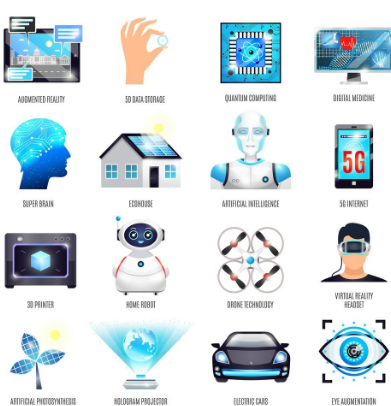Unveiling the Technological Marvels of the Future
Introduction: Technology has always been at the forefront of human progress, continually pushing boundaries and reshaping our lives. The world of tomorrow holds even more promise, with advancements that will revolutionize various industries, improve efficiency, and enhance our quality of life. From artificial intelligence to renewable energy, future technologies are poised to transform the way we live, work, and interact with the world around us. In this article, we will delve into the exciting features of these upcoming technologies, address common questions, and offer a glimpse of what lies ahead.

Features of Future Technology:
1. Artificial Intelligence (AI):
Artificial Intelligence is set to play a significant role in shaping the future. AI-driven systems are becoming increasingly sophisticated, with capabilities to understand and process vast amounts of data, make informed decisions, and learn from their experiences. From self-driving cars and voice assistants to personalized medicine and advanced robotics, AI will transform various sectors, boosting efficiency and innovation.
2. Internet of Things (IoT):
The Internet of Things is a network of interconnected devices that communicate and share data with one another. In the future, IoT will expand its reach, enabling smart homes, smart cities, and smart industries. Imagine a world where your refrigerator orders groceries when it detects you are running low or where traffic lights adjust in real time based on traffic patterns. IoT will enhance connectivity and automation, making our lives more convenient and efficient.
3. Renewable Energy and Sustainability:
As the world grapples with climate change and the need for sustainable practices, future technologies will focus heavily on renewable energy sources. Solar and wind power will continue to advance, becoming more accessible and efficient. Innovations in energy storage will enable us to harness and utilize renewable energy more effectively, reducing our dependence on fossil fuels and mitigating the environmental impact.
4. Virtual and Augmented Reality (VR/AR):
Virtual and augmented reality technologies are set to revolutionize the way we experience the world. VR offers immersive digital environments, allowing us to explore new worlds, participate in virtual meetings, and even revolutionize education and healthcare. AR, on the other hand, overlays digital information in the real world, enhancing our interactions and experiences. From gaming and entertainment to professional applications, VR and AR will redefine how we perceive reality.
5. Blockchain Technology:
Blockchain technology, known primarily for its association with cryptocurrencies like Bitcoin, has far-reaching potential beyond finance. The decentralized nature of blockchain offers secure and transparent systems for various applications. It can be utilized for supply chain management, voting systems, digital identities, and even the protection of intellectual property rights. The future will witness wider adoption of blockchain solutions, revolutionizing industries and enhancing security.

FAQs:
Q1: How will future technology impact employment?
A1: While some jobs may become automated, future technology will also create new employment opportunities. Industries such as AI, robotics, and renewable energy will see a surge in demand for skilled professionals. Additionally, technology can enhance productivity and enable workers to focus on more creative and complex tasks.
Q2: Will future technologies compromise privacy and security?
A2: Privacy and security are critical concerns, and future technologies must address them effectively. As advancements occur, regulations and safeguards will be put in place to protect personal data and ensure secure systems. Innovations like secure multiparty computation and differential privacy are being developed to preserve privacy while leveraging the benefits of technology.
Q3: How long will it take for these technologies to become mainstream?
A3: The timeline for the widespread adoption of future technologies varies depending on various factors. Some technologies, such as AI and IoT, are